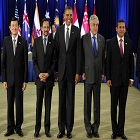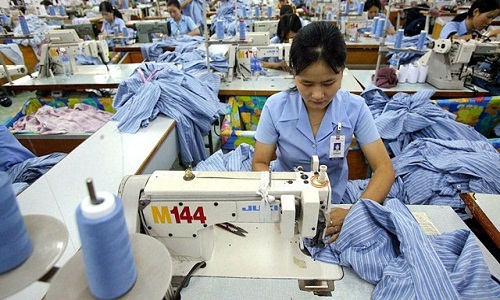"Though the Trans-Pacific Partnership (TPP) Agreement has come into effect having been signed on 4 February this year, few Vietnamese businesses have plans to switch from subcontracting to direct exports or reduce their heavy reliance on feedstock imports or increase exports of processed goods to improve value addition. This has caused fears that Vietnam is unlikely to derive the maximum benefit from the trade pact. "

Though the Trans-Pacific Partnership (TPP) Agreement has come into effect having been signed on 4 February this year, few Vietnamese businesses have plans to switch from subcontracting to direct exports or reduce their heavy reliance on feedstock imports or increase exports of processed goods to improve value addition. This has caused fears that Vietnam is unlikely to derive the maximum benefit from the trade pact.
Survey finds few willing to change production mode
A survey of 1,500 enterprises by the Vietnam Chamber of Commerce and Industry (VCCI) in April last found that only 11.6 per cent plan to change their production mode in the next three years to improve value addition, Nguyen Thi Thu Trang, head of the VCCI’s WTO Center, is reported to have said.

Vietnamese firms are not involved in the value chains of many products and merely do outsourcing for foreign partners. They import most feedstock for production for exports and now the TPP’s strict rules on origin will be a hurdle.
Yarn-forward rule coming
Import taxes, in many large economies like the US, Canada, Australia and Japan, the biggest buyers of Vietnamese textiles, will be cut from 17-32 per cent to zero. But there will be a "yarn-forward rule" stating that every piece of thread, button and zipper in a garment will have to come from TPP signatories to qualify for the tariff exemptions.
But most of Vietnam's yarn and components are sourced from China and South Korea, both non-TPP countries, making much of Vietnam's products ineligible for the exemptions. “I do not think there will be many changes to us after the TPP comes into effect; we will continue to implement outsourcing contracts,” Luong Van Thu, director of a garment firm in the northern Hung Yen Province, reportedly observed.
However, Vietnamese garment manufacturers can do little since they lack the financial strength to invest in their own yarn and textile facilities. A garment company requires an investment of millions of dollars which increases to billions of dollars for a textile and dying firm, industry insiders felt.












